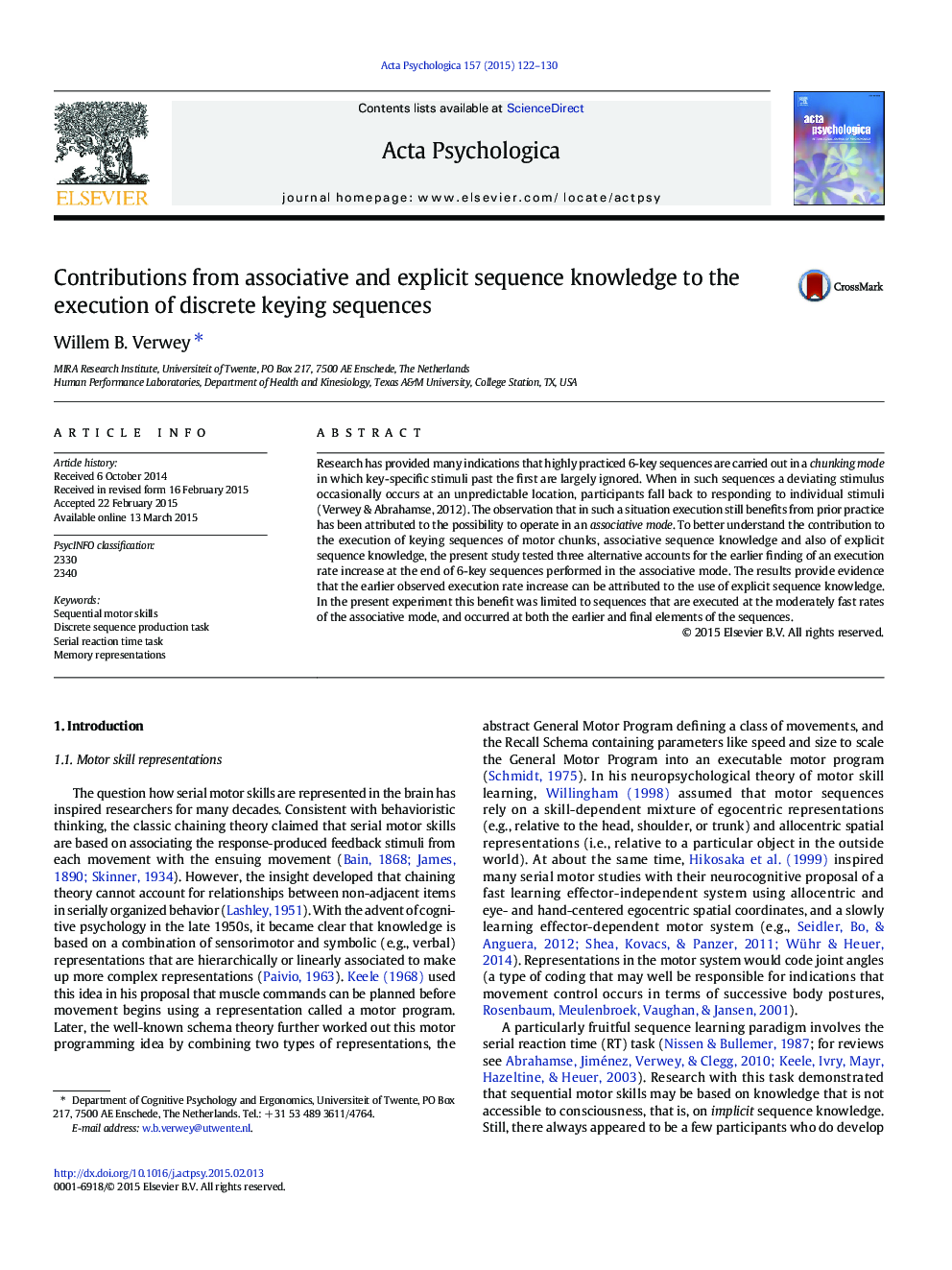| Article ID | Journal | Published Year | Pages | File Type |
|---|---|---|---|---|
| 7277369 | Acta Psychologica | 2015 | 9 Pages |
Abstract
Research has provided many indications that highly practiced 6-key sequences are carried out in a chunking mode in which key-specific stimuli past the first are largely ignored. When in such sequences a deviating stimulus occasionally occurs at an unpredictable location, participants fall back to responding to individual stimuli (Verwey & Abrahamse, 2012). The observation that in such a situation execution still benefits from prior practice has been attributed to the possibility to operate in an associative mode. To better understand the contribution to the execution of keying sequences of motor chunks, associative sequence knowledge and also of explicit sequence knowledge, the present study tested three alternative accounts for the earlier finding of an execution rate increase at the end of 6-key sequences performed in the associative mode. The results provide evidence that the earlier observed execution rate increase can be attributed to the use of explicit sequence knowledge. In the present experiment this benefit was limited to sequences that are executed at the moderately fast rates of the associative mode, and occurred at both the earlier and final elements of the sequences.
Keywords
Related Topics
Life Sciences
Neuroscience
Cognitive Neuroscience
Authors
Willem B. Verwey,
